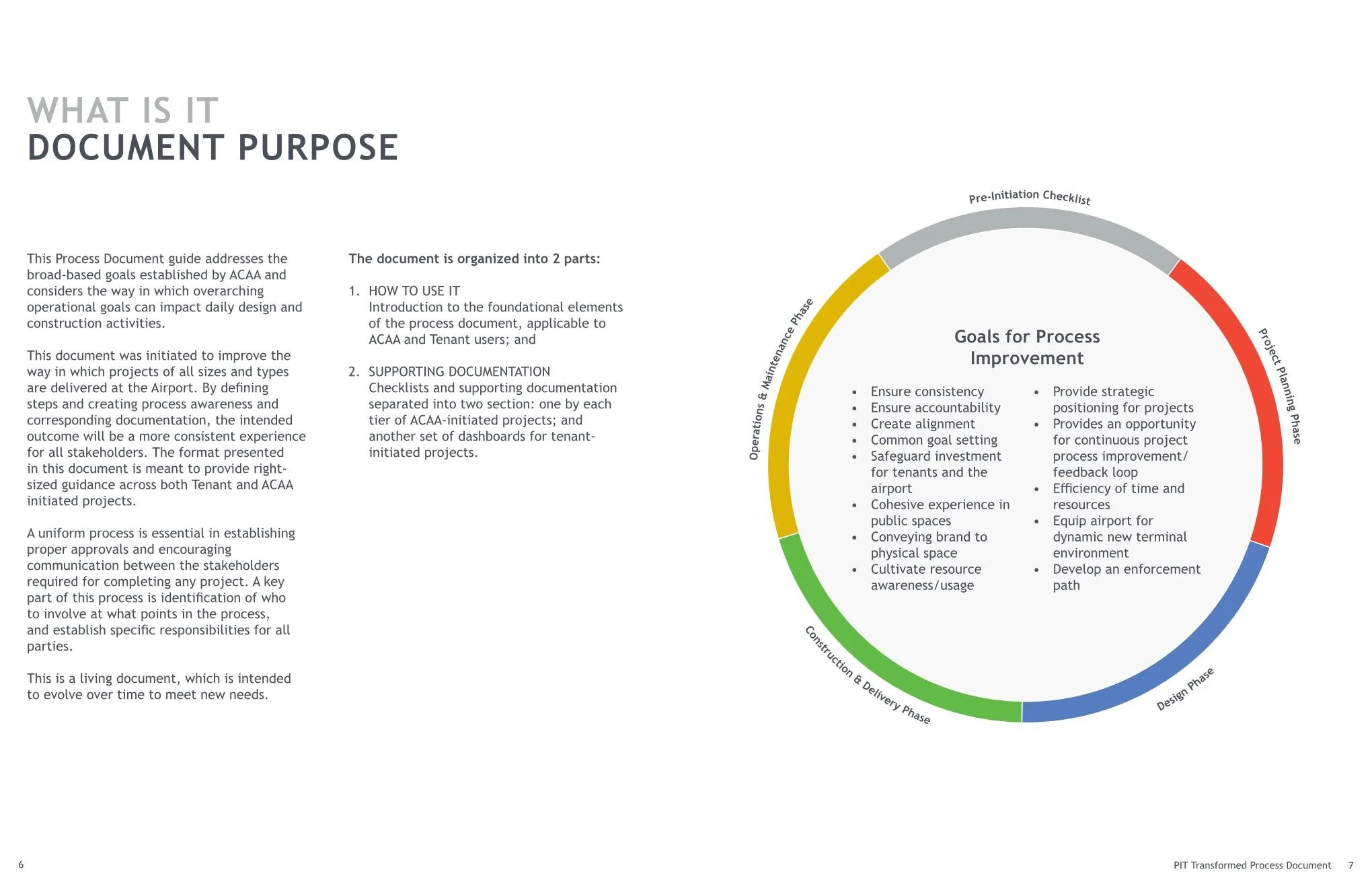Pittsburgh Airport:
Terminal Modernization Program
Project Type: Stakeholder Engagement
Pittsburgh, PA
2020
Role
Consulting Strategist, Stakeholder Engagement
Description
The long-term goal of the Terminal Modernization Project (TMP) is to create a smarter, more modern, more cost-efficient airport that will help reduce costs for airlines and attract more flights, more tourists, and more businesses to the region. In the short-term, the region can expect thousands of jobs created and more than $1 billion in economic activity.
Due to the scale of the project, there are a number of individuals, groups, organizations, partners and stakeholders whose input needs to be considered and integrated into the design process. Over the course of concept design development, we designed and implemented over 15+ stakeholder activities to incorporate into and validate design decisions.
Outcome
Designed and facilitated a two-day workshop to immerse PIT Airport leadership in design thinking, and provide a
framework to make design decisions.
PHASE 1: DISCOVER
PHASE 2: DEFINE
PHASE 3: DELIVER
PHASE 1: DISCOVER
The team designed and facilitated a two-day workshop to immerse PIT Airport leadership in design thinking, and provide a
framework to make design decisions. We helped the leadership define a problem statement, then iterate potential solutions.
Session Goals
Goal 1: Embody the passenger experience to understand the spectrum of needs
Goal 2: Ideate around enhancements with the highest potential impact to airport journey
Goal 3: Prompt cutting edge ideas to explore through schematic design phase
Goal 4: Immerse team in design thinking methodology
Problem Statement: How might we optimize the passenger experience for both departure and arrival flow?
PHASE 2: DEFINE
We designed a series of exercises to put the leadership team in the shoes of the user. Through constraint testing and journey mapping,
the group identified opportunity zones to improve the user experience.
PHASE 3: DELIVER
During the ideation phase, the leadership team shared dozens of ideas on how to improve moments of the passenger experience. Two major takeaways included:
Human Response: Preferred user experiences weren’t technology driven, meaning that technology should be additive to an already quality human experience.. Encourage staff to go above and beyond to make the user feel like royalty.
Accessibility: Keep user needs at the forefront of ideation to ensure the solution meets the needs of the extremes. Focus on seamless technology as an enabler
In addition to the Design Thinking workshop, our team defined and delivered the PIT TMP Process Document. We outlined the project priorities, identifying key stakeholder groups, and aligned the process with their values. Selected pages from final document included below.






